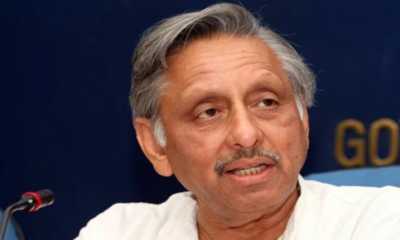Delhi High Court had earlier rejected BJP leader Subramanian Swamy’s plea for a SIT probe in the case and termed it a political interest litigation
The Supreme Court, on Monday (January 29), asked BJP leader Subramanian Swamy to establish the maintainability of his petition that seeks a SIT probe into the mysterious death of Sunanda Pushkar, wife of Congress MP Shashi Tharoor.
The court would entertain Swamy’s plea, which had earlier been dismissed by the Delhi High Court, only after he is able to establish its maintainability and his locus standi in the case.
On Monday, as Swamy’s special leave petition (SLP) came up for hearing before a bench of Supreme Court Justices Arun Mishra and Amitava Roy, the judges made it clear to the BJP leader that, “we need to be satisfied regarding the maintainability of the petition, considering the opinion expressed by the High Court.”
It may be recalled that on October 26 last year, the Delhi High Court had rejected a similar petition filed by Swamy while also strongly reprimanding him over it. Dismissing his public interest litigation (PIL) that sought a court-monitored SIT probe into Pushkar’s death, a Division Bench of Justices S Muralidhar and IS Mehta of the Delhi High Court had asked Swamy to “be extremely circumspect in placing such a petition in the public domain even before it is properly considered by the Court”.
The Delhi High Court had dubbed Swamy’s petition as a “textbook example of a ‘political interest litigation’ dressed up as a PIL” and taken a dig at the BJP leader in its order, stating that he “likes to be thought of as a veteran PIL petitioner”.
“The Court should be careful in not letting the judicial process be abused by political personae for their own purposes… That is not to say that no political person can file a PIL. It is only that, in such instances, particularly where the principal allegations are against political opponents, the Court should be cautious in proceeding in the matter,” the Delhi High Court had said in its order.
On Monday, it was these strong observations made by the Delhi High Court against Swamy’s PIL that seemed to weigh heavily on the mind of the Supreme Court Bench as the BJP leader’s petition was moved before it.
“I was arguing the PIL regarding the mode of auction of the IPL media rights by the BCCI when the death of Ms. Pushkar in such mysterious circumstances caught my attention. It took (the Delhi Police) one year to file a FIR in respect of the death despite the autopsy and the post-mortem report confirming that it was an unnatural death. Even the FIR claimed it as a murder”, Swamy told the apex court bench of Justices Arun Mishra and Amitava Roy.
The Bench asked the BJP leader: “What is the conclusion of the police on this? Do they say it is an unnatural death?” to which Swamy responded by saying: “That is what even I want. I want the police to file their reply.”
Expressing concern over the maintainability of Swamy’s petition, the SC Bench said: “the investigation is still going on” while it also sought to know what was the locus standi of the BJP leader in the case. Swamy responded: “I have even appeared in the Jayalalithaa case as a politician. This is a matter of public interest”.
The Bench, while refusing to issue any notices to the Delhi police against Swamy’s plea at the moment, asked the BJP leader to first argue on the issue of maintainability of his petition. The matter has been scheduled for further hearing in 3 weeks.


 India News13 hours ago
India News13 hours ago
 India News12 hours ago
India News12 hours ago
 India News3 hours ago
India News3 hours ago
 Cricket news2 hours ago
Cricket news2 hours ago
 India News1 hour ago
India News1 hour ago














